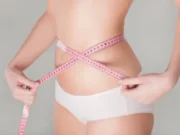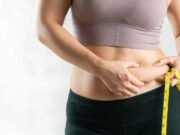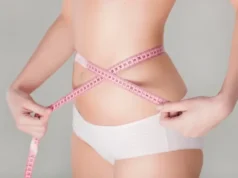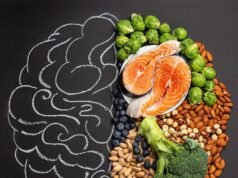Introduction
There’s something almost rebellious about stepping into a cold shower—expecting a jolt of shock, a gasp, and maybe a moment of resolve. But although few of us start our day with a shiver by design, the practice of cold showers has found a devoted following among wellness seekers, biohackers, and self-growth enthusiasts. What exactly happens to your body, mind, and metabolism when you brave the chill? In this post, we’ll dive deep into the science, benefits, caveats, and practical tips behind cold showers—so you can decide whether this brisk ritual deserves a spot in your daily routine at SmartInnovateHub.com.

Why Do People Take Cold Showers? (Or Why It Has Gained Popularity)
Cold showers and cold-water exposure (sometimes called “cold therapy” or hydrotherapy) are not new concepts—they trace back to ancient traditions. What’s changed today is that more people are treating them as intentional tools for health, performance, mental toughness, and self-growth.
Some motivations include:
- Boosting energy & alertness
- Accelerating recovery after workouts
- Improving mood, resilience, and stress response
- Supporting immune function
- Potential metabolic and fat-burning effects
However, as we’ll see, these benefits may vary in strength, and not all claims are fully proven. Still, the physiological responses to cold water are well documented—so let’s unpack what happens under the skin.
The Physiology: What Happens in Your Body
When cold water hits your skin (especially abruptly), multiple systems in your body respond. Here’s a breakdown:
1. Cold Shock Response & Circulatory Reaction
- The sudden drop in surface temperature triggers the “cold shock” response: an involuntary gasp, increased heart rate, and rapid breathing.
- Blood vessels near the skin constrict (vasoconstriction) to reduce heat loss, sending blood toward the core to protect vital organs.
- Later, as you warm up, vasodilation (widening of blood vessels) occurs, aiding circulation and flushing tissues.
- Over time, repeated exposure may train your circulatory system to become more efficient. Medical News Today+2PMC+2
2. Hormonal & Neurochemical Response
- Cold exposure stimulates the release of norepinephrine (noradrenaline), which plays a role in alertness, focus, and modulation of pain perception. Huberman Lab+2Medical News Today+2
- It may also raise dopamine & endorphins, which contributes to a mood lift and sense of well-being. Huberman Lab+1
- The “stress” of the cold acts as a micro-stress, triggering adaptive responses in the autonomic nervous system. PMC+1
3. Immune System & Inflammation Modulation
- A 2024 study showed that regular cold shower exposure increased immunoglobulin levels (IgG, IgA, IgM) and elevated interleukin-2 and IL-4, markers associated with both humoral and cell-mediated immunity. ScienceDirect
- More broadly, cold exposure is considered a mild stressor that can prime the immune system—though whether this translates to stronger disease resistance remains under investigation. PMC+2Medical News Today+2
- Cold water constricts blood vessels, which can reduce swelling and inflammation in tissues (a mechanism used in ice baths for injury recovery). Mayo Clinic Press+2Medical News Today+2
4. Metabolic & Fat-Burning Effects
- To maintain core temperature, your body expends energy—raising metabolic rate temporarily. PMC+3Medical News Today+3Healthline+3
- Cold exposure may also activate brown adipose tissue (BAT) or “brown fat,” which burns calories to generate heat. Huberman Lab+2Inessa+2
- Some small studies propose improved insulin sensitivity or glucose uptake under cold exposure contexts. Inessa+1
5. Effects on Recovery, Pain & Muscle Soreness
- Cold therapy is a longstanding practice to reduce post-exercise soreness. Cold showers or immersion may help reduce muscle damage, flush metabolic waste, and reduce delayed onset muscle soreness (DOMS). Medical News Today+2Mayo Clinic Press+2
- However, some evidence suggests that frequent cold exposure immediately after strength training might blunt hypertrophy (muscle growth) signals. Medical News Today+3Mayo Clinic Press+3Wikipedia+3
Benefits of Cold Showers: What Evidence Supports It?
Below is a deeper look into potential advantages of cold showers—tempered with caveats from current research.
✅ Increased Alertness & Energy
One of the most immediate effects: cold water wakes you up. The shock triggers sympathetic activation—heightened heart rate, sharper breathing, and a burst of focus. Medical News Today+2Huberman Lab+2
Many users report feeling brisk, invigorated, and ready for the day after a cold rinse.
✅ Mood Lift & Stress Resilience
Because of the neurochemical response (norepinephrine, dopamine, endorphins), some people find cold showers help reduce symptoms of low mood or mild depression. PMC+3Huberman Lab+3Medical News Today+3
A 2023 trial showed participants felt more attentive, proud, and less distressed after cold-water immersion. Medical News Today
Furthermore, repeated exposure to manageable stressors can strengthen your stress-coping systems (psychological resilience). Huberman Lab+1
✅ Immune & Health Support
The 2024 cold shower immunology study (cited above) provides promising evidence of immune upregulation in healthy individuals. ScienceDirect
In a classic 2016 experiment, participants who added 30–90 seconds of cold showers to their daily routine reported 29% fewer sick-day absences over two months. Medical News Today+1
Still, causation is not firmly established, and many studies caution that lifestyle, diet, and other behaviors may confound such results. PMC+2Medical News Today+2
✅ Circulation & Cardiovascular Conditioning
By repeatedly constricting and dilating blood vessels, cold showers can train the vascular system to respond more flexibly. Healthline+2Medical News Today+2
Better circulation helps deliver nutrients and oxygen to tissues more efficiently and may aid in skin and organ health. texashealth.org+2WebMD+2
✅ Reduced Inflammation & Pain
The vasoconstriction induced by cold temporarily limits blood flow to inflamed areas, and as vessels re-open, the flush can help clear waste metabolites and reduce swelling. Mayo Clinic Press+2Medical News Today+2
Cold also slows nerve conduction, which can diminish pain perception. Health+2Medical News Today+2
✅ Possible Metabolic Advantages
While the calorie burn from a cold shower is modest, the cumulative effect (especially through brown fat activation) may support metabolic health. PMC+3Huberman Lab+3Medical News Today+3
Incremental improvements to insulin sensitivity and glucose handling have been observed in cold exposure contexts, though more research is needed. Inessa+1
Risks, Limitations & Who Should Be Cautious
Cold showers are not universally risk-free. Here are important caveats to consider:
⚠ Sudden Cold Shock & Heart Strain
The abrupt temperature drop can provoke significant cardiovascular stress (spikes in heart rate, blood pressure). That’s a concern for individuals with underlying heart conditions, hypertension, or circulatory problems. Huberman Lab+3Mayo Clinic Press+3Medical News Today+3
If you ever feel chest discomfort, dizziness, or irregular heartbeat, stop immediately and seek medical advice.
⚠ Hypothermia & Overexposure
Extending exposure too long or doing it in very cold settings (especially outdoors) risks hypothermia. Mayo Clinic Press+2PMC+2
Moderation is key.
⚠ Potential Blunting of Muscle Growth
Frequent cold immersion soon after strength training may reduce anabolic signaling and blunt gains. Some studies caution against overusing cold right after workouts if muscle growth is your objective. Mayo Clinic Press+2Wikipedia+2
⚠ Conflicting Evidence & Limitations
Many of the claimed benefits have subjective backing or small-scale studies. The review of cold-water exposure notes that many positive claims may reflect confounding healthy lifestyle factors rather than the cold exposure itself. PMC
Moreover, individual tolerance, baseline fitness, and health status heavily mediate outcomes.
⚠ Not Suitable for Everyone
People with cardiovascular disease, severe respiratory conditions, Raynaud’s syndrome, cold urticaria (hives from cold), or who are pregnant should consult a healthcare provider before experimenting with cold showers. Medical News Today+2PMC+2
How to Apply Cold Showers Safely & Effectively
If you’re intrigued and ready to experiment, here’s a step-by-step guide:
1. Start Gradually
- Begin with your usual warm shower.
- At the end, switch to cold for 15–30 seconds.
- Gradually increase to 1 minute, then 2 minutes, etc., as your body adapts.
- You don’t always need freezing temperatures—“uncomfortably cold but tolerable” is enough. Huberman Lab+2Medical News Today+2
2. Contrast Showers (Hot / Cold Alternation)
Alternate between warm and cold in cycles (e.g., 2 min warm, 30–60 sec cold, repeat a few times). End on cold. This can leverage benefits of both vasodilation and vasoconstriction. UCLA Health+2Medical News Today+2
3. Breathing Focus & Mental Control
Prepare mentally: control your breathing, relax into the shock rather than resisting. That mental training aspect is part of the resilience gain. Huberman Lab+1
4. Timing Considerations
- Morning showers: good for alertness and mood.
- Post-workout: use with caution (especially for strength training).
- Avoid long exposure immediately after very intense exercise, if hypertrophy is your focus. Mayo Clinic Press+2Medical News Today+2
5. Listen to Your Body
If you experience extreme discomfort, numbness, prolonged shivering, or symptoms indicating cold stress, stop and warm up. Always prioritize safety.
6. Make It Consistent, Not Extreme
Small, consistent cold exposure likely trumps sporadic extreme plunges. Over time, your body adapts, and benefits may accrue more sustainably. ScienceDirect+3Huberman Lab+3PMC+3
Real-Life Examples & Anecdotes
- A team of over 3,000 office workers in a classic experiment added a 30–90 second cold flush at the end of regular showers. After 60 days, they reported about 29% fewer sick-day absences. Mayo Clinic Press+1
- Wellness and biohacking communities often treat cold showers as a “micro-dose stressor” — like a gym workout for your autonomic system — helping them build mental resilience and stress tolerance. Huberman Lab+1
- In the 2024 immunology study, healthy adults who consistently took cold showers over 90 days saw measurable rises in key immune markers (IgG, IgA, IgM, IL-2, IL-4). ScienceDirect
These examples show that while cold showers may not be magical, they do offer intriguing physiological and psychological “nudges” when used mindfully and safely.
Should You Take Cold Showers?
Here’s a quick decision checklist:
| ✅ Pros You May Gain | ⚠ Considerations or Risks |
|---|---|
| More energy, alertness, mood boost | If you have heart or circulatory conditions, risk of strain |
| Immune priming (possible) | Not a substitute for medical treatments |
| Better circulation & vascular responsiveness | May blunt muscle gains if overused post-strength training |
| Reduced soreness, inflammation | Individual results vary; evidence isn’t conclusive |
| Mental resilience training | Cold intolerance or contraindicated medical conditions |
If you’re generally healthy, curious, and willing to proceed gently, cold showers can be a low-cost, low-risk experiment in self-optimization. But always prioritize safety, and check with your doctor if you have health concerns.
Conclusion & Call to Action
A cold shower may feel like a shock to the system, but beneath the chilly surface lies a cascade of physiological and psychological responses—some well established, others still emerging in research. From sharper alertness and mood uplift to immune modulation, metabolic nudges, and resilience training, cold exposure offers a compelling tool in the toolkit of self-growth and wellness. But it’s not a panacea—temper expectations, adapt gradually, and listen to your body.
Have you tried taking cold showers? What was your experience like—energizing, daunting, or somewhere in between? Drop a comment below, share this article with a friend who needs a jolt of invigoration, or explore more innovation, lifestyle, and self-growth content over at SmartInnovateHub.com.






















